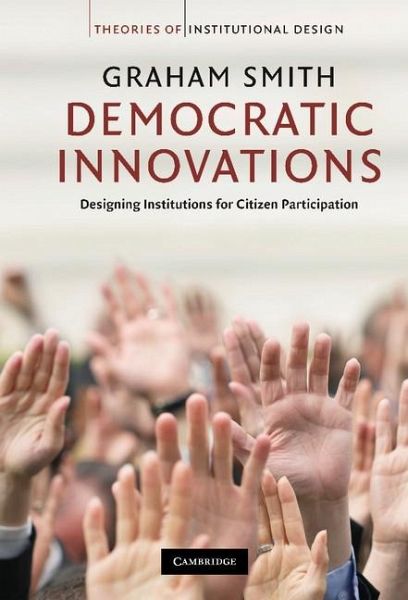
Democratic Innovations (eBook, ePUB)
Designing Institutions for Citizen Participation
Versandkostenfrei!
Sofort per Download lieferbar
16,95 €
inkl. MwSt.
Weitere Ausgaben:

PAYBACK Punkte
8 °P sammeln!
Can we design institutions that increase and deepen citizen participation in the political decision making process? At a time when there is growing disillusionment with the institutions of advanced industrial democracies, there is also increasing interest in new ways of involving citizens in the political decisions that affect their lives. This book draws together evidence from a variety of democratic innovations from around the world, including participatory budgeting in Brazil, Citizens' Assemblies on Electoral Reform in Canada, direct legislation in California and Switzerland and emerging e...
Can we design institutions that increase and deepen citizen participation in the political decision making process? At a time when there is growing disillusionment with the institutions of advanced industrial democracies, there is also increasing interest in new ways of involving citizens in the political decisions that affect their lives. This book draws together evidence from a variety of democratic innovations from around the world, including participatory budgeting in Brazil, Citizens' Assemblies on Electoral Reform in Canada, direct legislation in California and Switzerland and emerging experiments in e-democracy. The book offers a rare systematic analysis of this diverse range of democratic innovations, drawing lessons for the future development of both democratic theory and practice.
Dieser Download kann aus rechtlichen Gründen nur mit Rechnungsadresse in A, B, BG, CY, CZ, D, DK, EW, E, FIN, F, GR, HR, H, IRL, I, LT, L, LR, M, NL, PL, P, R, S, SLO, SK ausgeliefert werden.













